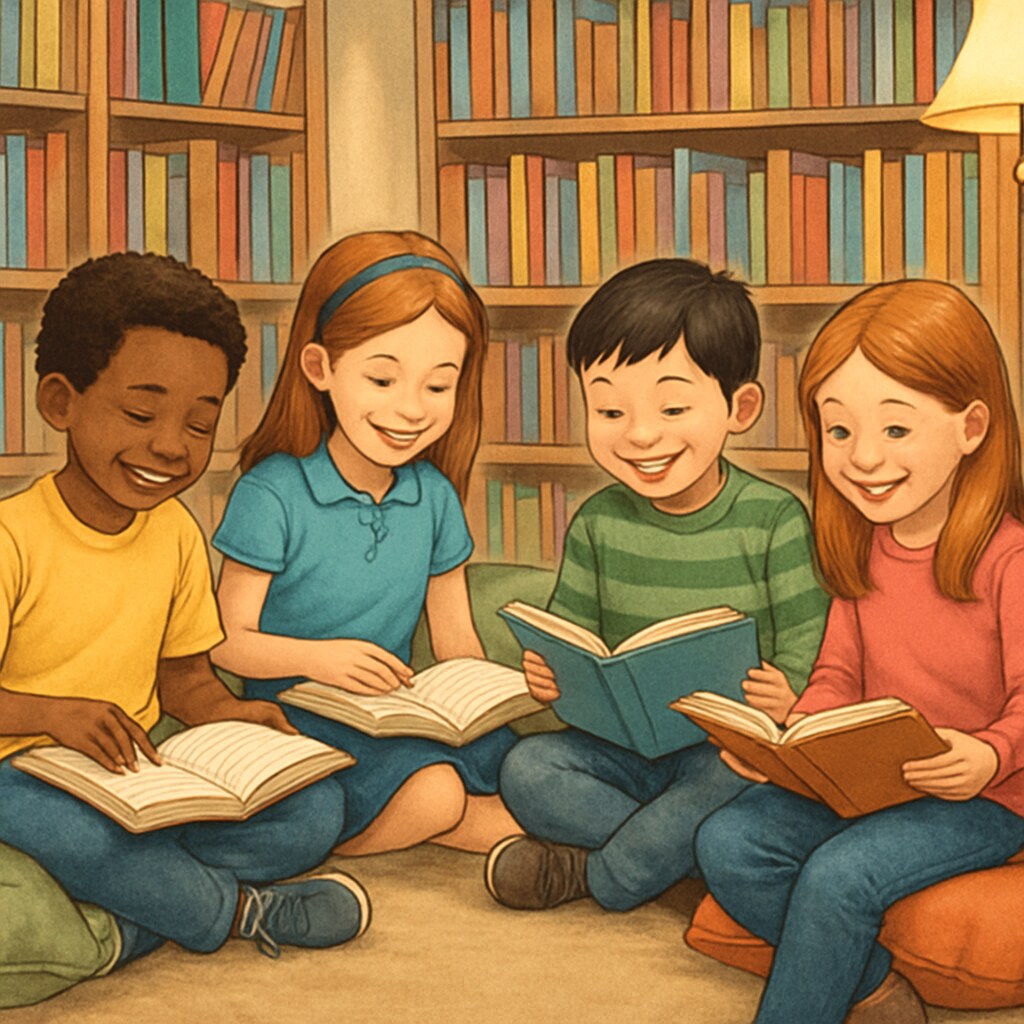For years, the Accelerated Reader (A.R.) system has been a staple in elementary classrooms, encouraging students to read and earn points based on comprehension quizzes. While it has its merits, many parents and educators are seeking free alternatives to A.R. points that can cultivate a deeper love for reading and improve comprehension. This article introduces free resources that go beyond point accumulation, focusing on fostering a lifelong passion for literature in young learners.
Why Move Beyond A.R. Points?
Although the A.R. program has successfully motivated students to read more, its heavy emphasis on earning points can sometimes overshadow the intrinsic value of reading. Children may prioritize short or easy books over challenging texts to maximize their scores, potentially stifling growth in reading comprehension and critical thinking. Additionally, A.R. programs often come with subscription costs, making them inaccessible for some schools and families.
Free resources not only eliminate financial barriers but also offer flexibility in tailoring reading experiences to a child’s unique interests and abilities. By shifting the focus from rewards to exploration and understanding, these alternatives encourage children to engage with literature on a deeper level.

Top Free Resources for Elementary Reading Comprehension
Here are some excellent, free tools and platforms that parents and educators can use to replace A.R. points while still nurturing reading comprehension and enthusiasm:
- Storyline Online: This platform offers professionally narrated videos of popular children’s books, read by actors from the Screen Actors Guild. Visit Storyline Online to explore their library of engaging stories.
- ReadWorks: Designed for educators, ReadWorks provides thousands of free, high-quality reading passages paired with comprehension questions. The platform also includes tools to track student progress. Learn more on ReadWorks.
- CommonLit: With texts ranging from fiction and poetry to historical documents, CommonLit helps children build reading skills while offering teachers detailed assessment tools. Visit CommonLit for free resources.
- Project Gutenberg: This treasure trove of public domain books allows children to explore classic literature for free. Although it doesn’t offer quizzes, the diverse collection can inspire rich discussions. Check out Project Gutenberg.
- Khan Academy Kids: This app is ideal for younger readers, offering interactive stories and comprehension exercises in a playful, engaging format. Download Khan Academy Kids for free learning.
Creative Ways to Assess Reading Without Tests
Standardized comprehension quizzes aren’t the only way to evaluate a child’s reading progress. Parents and teachers can implement these creative approaches to make assessment more enjoyable:
- Book Discussions: Host a mini book club where children share their favorite parts of a story, discuss themes, and ask questions.
- Art Projects: Encourage children to create drawings or dioramas depicting scenes from their books to demonstrate understanding.
- Story Retelling: Have students retell a story in their own words, focusing on main ideas, characters, and plot details.
- Character Journals: Ask children to write journal entries from the perspective of a book’s main character, allowing them to explore motivation and emotions.

Building a Lifelong Love of Reading
The ultimate goal of any reading program should be to instill a lifelong love for literature. Here are some tips to achieve this:
- Let Children Choose: Allow young readers to select books that match their interests, even if they seem unconventional.
- Create a Reading Ritual: Dedicate a specific time each day to reading together as a family or class.
- Celebrate Progress: Celebrate milestones, such as finishing a challenging book or exploring a new genre, to keep motivation high.
By prioritizing engagement and curiosity over rewards, parents and educators can help children discover the joy of reading, which extends far beyond the classroom.
Readability guidance: This article uses short paragraphs and lists to emphasize key points. The tone is professional yet accessible, ensuring the content is clear for educators and parents alike.


